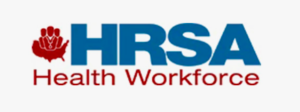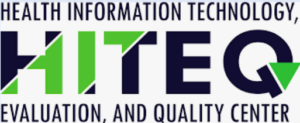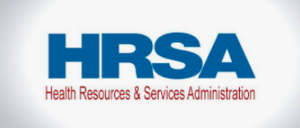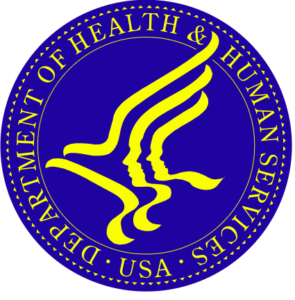- Social Factors Help Explain Worse Cardiovascular Health among Adults in Rural Vs. Urban Communities
- Reducing Barriers to Participation in Population-Based Total Cost of Care (PB-TCOC) Models and Supporting Primary and Specialty Care Transformation: Request for Input
- Secretary Kennedy Renews Public Health Emergency Declaration to Address National Opioid Crisis
- 2025 Marketplace Integrity and Affordability Proposed Rule
- Rural America Faces Growing Shortage of Eye Surgeons
- NRHA Continues Partnership to Advance Rural Oral Health
- Comments Requested on Mobile Crisis Team Services: An Implementation Toolkit Draft
- Q&A: What Are the Challenges and Opportunities of Small-Town Philanthropy?
- HRSA Administrator Carole Johnson, Joined by Co-Chair of the Congressional Black Maternal Health Caucus Congresswoman Lauren Underwood, Announces New Funding, Policy Action, and Report to Mark Landmark Year of HRSA's Enhancing Maternal Health Initiative
- Biden-Harris Administration Announces $60 Million Investment for Adding Early Morning, Night, and Weekend Hours at Community Health Centers
- Volunteer Opportunity for HUD's Office of Housing Counseling Tribe and TDHE Certification Exam
- Who Needs Dry January More: Rural or Urban Drinkers?
- Rural Families Have 'Critical' Need for More Hospice, Respite Care
- Rural Telehealth Sees More Policy Wins, but Only Short-Term
- States Help Child Care Centers Expand in Bid To Create More Slots, Lower Prices
HRSA Substance Use Disorder Treatment and Recovery Loan Repayment Program Launches

– June 27. HRSA’s Bureau of Health Workforce provides up to $250,000 in loan repayment for behavioral health clinicians, support workers, and clinical support staff trained in substance use disorders. According to data from the Rural Health Research Gateway, “as of March 31, 2023, there were 4,040 Mental Health Professional Shortage Areas in rural areas, with 2,141 practitioners needed to remove the designations.”
Mpox Cases on the Rise in Pennsylvania

Mpox cases continue to rise in Pennsylvania and the surrounding states. The Pennsylvania Department of Health (DOH) is encouraging providers to continue to screen all patients with suspected mpox for travel to the Democratic Republic of the Congo (DRC) or recent contact with someone who has traveled to DRC. Providers should be aware of the more stringent infection control measures required for Clade I mpox and are encouraged to follow the CDC guidelines for infection prevention and control for mpox. Outreach, education, testing and vaccination continue to be important. According to DOH, Hispanic men are significantly impacted and there is need for these interventions among the migrant worker population. See mpox toolkit for more information on mpox and promotional materials.
Clinical Quality Measures for Eligible Professionals: 2024 Update Released

A new spreadsheet developed by the HITEQ Center provides a crosswalk of Clinical Quality Measures and their electronic specifications as defined in the 2023 update for Eligible Professionals (Clinicians). Fields include the crosswalk of measures with related information about CMS, NQF, and CMS Quality or MIPS ID, and Telehealth Eligibility, as well as inclusion in HRSA BPHC Uniform Data System (UDS) CY2024, Million Hearts, CMS Quality Payment Program (QPP) – APM Performance Pathway (APP) Measures, 2024 APM Performance Pathway: CMS Web Interface Measure Benchmarks for CMS ACO Shared Savings Program, CMS Core Set (Child Core Set Medicaid / CHIP): HEDIS Specified, CMS Core Set (Adult Core Set Medicaid): HEDIS Specified, Core Quality Measures Collaborative (ACO / Primary Care). Links are included throughout. Download the spreadsheet here.
Medicare Telehealth Legislation Takes Another Step Forward

Last week, the House Energy & Commerce Health Subcommittee advanced a two-year extension of Medicare telehealth payment policies to the full Energy & Commerce Committee. The bill, H.R. 7623, the Telehealth Modernization Act of 2024, includes a two-year extension of current policies and would also ensure that Medicare reimburses telehealth visits at the same rate as in-person visits. This payment parity language, along with the rest of the policy extensions, passed the subcommittee by a 21-0 bipartisan vote. The full Committee will consider the bill in the coming months.
New Study Provides Summary on Rural Behavioral Health Workforce Retention

According to a new study by the Provider Retention and Information System Management (PRISM), behavioral health professionals who had an experience with rural health care during their training are more likely to work and stay in rural areas when they enter practice. PRISM’s Behavioral Health study that was published by The Journal of Rural Health is now available here. This study assesses the amount of exposure to care in rural underserved communities that behavioral health clinicians received during training and how it impacted their success and retention in rural safety net practices.
America is Experiencing More than a Red-Blue Divide

If you’re serving multi-generations like most Community Health Centers are, you’ll want to look at the charts in Washington strategist Bruce Mehlman’s Six-Chart Sunday newsletter. The infographics highlight some startling differences between older and younger generations across an array of topics, including values, economics, party identification, and happiness.
Appeals Court Approves Drugmakers’ Federal 340B Contract Pharmacy Restrictions
 On May 21, the Federal Appeals Court ruled that the 340B statute doesn’t prohibit drugmakers from placing any conditions on distribution of 340B drugs to covered entities. However, the ruling left open the possibility that more stringent conditions by drugmakers could be illegal. NACHC is analyzing the appeal and its impact on FQHCs. Click here to read the appeal.
On May 21, the Federal Appeals Court ruled that the 340B statute doesn’t prohibit drugmakers from placing any conditions on distribution of 340B drugs to covered entities. However, the ruling left open the possibility that more stringent conditions by drugmakers could be illegal. NACHC is analyzing the appeal and its impact on FQHCs. Click here to read the appeal.
HRSA Regional Office Offers Free Presentation on Securing Federal Grants
 The U.S. Department of Health and Human Services (HHS), Health Resources and Services Administration (HRSA), Region 3 Office, will present key steps and resources for seeking federal grants. Attendees will have a chance to learn about identifying HRSA grant opportunities, navigating the grant application process, and accessing technical assistance resources. In addition, the session will include tips from a current HRSA grantee and details on how to become a HRSA grant reviewer. Individuals at all levels of experience, from those considering a first grant submission to those with prior grant writing experience, are welcome. PLEASE NOTE: The registration site also includes the full grant writing series, Ready! Set! Write! Grant Writing from A to Z. Scroll down the page to register for the free federal session scheduled for Tuesday, June 4, 9:30–11:00 am. Click here to register!
The U.S. Department of Health and Human Services (HHS), Health Resources and Services Administration (HRSA), Region 3 Office, will present key steps and resources for seeking federal grants. Attendees will have a chance to learn about identifying HRSA grant opportunities, navigating the grant application process, and accessing technical assistance resources. In addition, the session will include tips from a current HRSA grantee and details on how to become a HRSA grant reviewer. Individuals at all levels of experience, from those considering a first grant submission to those with prior grant writing experience, are welcome. PLEASE NOTE: The registration site also includes the full grant writing series, Ready! Set! Write! Grant Writing from A to Z. Scroll down the page to register for the free federal session scheduled for Tuesday, June 4, 9:30–11:00 am. Click here to register!
Federal Poverty Income Guidelines for 2024 Released
 The Department of Human Services (DHS) has announced implementation in Pennsylvania of the 2024 Federal Poverty Income Guidelines (FPIG), which were issued by the Department of Health and Human Services (HHS) on Jan. 17, 2024. The FPIGs are the basis for FQHC sliding fees and the income eligibility limits for several categories of Medicaid whose regulations are published in 55 Pa. Code (relating to human services) and administered by the PA Department of Human Services. Click here to read the notice in the PA Bulletin.
The Department of Human Services (DHS) has announced implementation in Pennsylvania of the 2024 Federal Poverty Income Guidelines (FPIG), which were issued by the Department of Health and Human Services (HHS) on Jan. 17, 2024. The FPIGs are the basis for FQHC sliding fees and the income eligibility limits for several categories of Medicaid whose regulations are published in 55 Pa. Code (relating to human services) and administered by the PA Department of Human Services. Click here to read the notice in the PA Bulletin.
Senate Finance Committee Holds Hearing on Addressing SUD and Behavioral Health
 On Thursday morning, the Senate Finance Committee held a hearing: “Front Lines of the Fentanyl Crisis: Supporting Communities and Combating Addiction through Prevention and Treatment.” This was a great opportunity to highlight for Senators the great work that health centers are doing in behavioral health. PACHC sent background information on the impactful work being done by Pennsylvania’s FQHCs to Senator Casey, who is a member of the Committee. Dr. Abigail Herron, who works for an FQHC in New York state, testified at the hearing.
On Thursday morning, the Senate Finance Committee held a hearing: “Front Lines of the Fentanyl Crisis: Supporting Communities and Combating Addiction through Prevention and Treatment.” This was a great opportunity to highlight for Senators the great work that health centers are doing in behavioral health. PACHC sent background information on the impactful work being done by Pennsylvania’s FQHCs to Senator Casey, who is a member of the Committee. Dr. Abigail Herron, who works for an FQHC in New York state, testified at the hearing.
